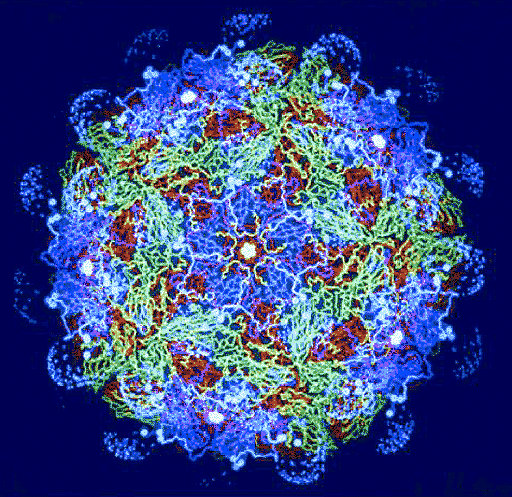 |
LITR 4332 American
Minority Literature 2013 Student Midterm Samples #1. Short essay (4-6 paragraphs) on 1 of 2 options
option 1a. Highlight and analyze |
 |
Jennifer Longoria
Part 1A – Short Essay
The Plight of the Mulatto Race
Frederick Douglass
[1.6]
I know of such cases; and it is
worthy of remark that such slaves
[of mixed race]
invariably suffer greater hardships, and have more to contend with, than others.
They are, in the first place,
a constant offence to their
mistress
[slave-owner's wife].
She is ever disposed to find fault with them; they can seldom do any thing to
please her; she is never better pleased than when she sees them under the lash,
especially when
she suspects her husband of
showing to his mulatto children favors
which he withholds from his black slaves. The master is frequently compelled to
sell this class of his slaves, out of deference to the feelings of his white
wife; and, cruel as the deed may strike any one to be,
for a man
to sell his own children to human flesh-mongers, it is often the dictate of
humanity for him to do so; for, unless he does this, he must not only whip them
himself, but must stand by and see one white son tie up his brother, of but few
shades darker complexion than himself, and ply the gory lash to his naked back;
and if he lisp one word of disapproval, it is set down to his
parental
partiality,
and only makes a bad matter worse, both for himself and the slave whom he would
protect and defend.
Harriet Jacobs
[6.20]
I did as she ordered. As I went
on with my account her color changed frequently, she wept, and sometimes
groaned.
She spoke in tones so sad, that I was touched by her grief.
The tears came to my eyes; but I was soon convinced that her emotions arose from
anger and wounded pride. She felt that her marriage vows were desecrated, her
dignity insulted; but she had no compassion for the poor victim of her husband's
perfidy
[deceit, treachery].
She pitied herself as a martyr; but she was incapable of feeling for the
condition of shame and misery in which her unfortunate, helpless slave was
placed.
Yet perhaps she had
some touch of feeling for me; for when the conference was ended, she spoke
kindly, and promised to protect me.
I should have been much comforted by this assurance if I could have had
confidence in it;
but my experiences in slavery
had filled me with distrust.
She was not a very refined woman, and had not much control over her passions.
I was an
object of her jealousy,
and, consequently, of her hatred; and I knew I could not expect kindness or
confidence from her under the circumstances in which I was placed. I could not
blame her.
Slaveholders' wives feel as
other women would under similar circumstances.
The fire of her temper kindled from small-sparks, and now the flame became so
intense that the doctor was obliged to give up his intended arrangement.
The Plight of the Mulatto Race
When I decided to take an American Minority Literature class,
I felt that I knew what to expect from the literature we were to read during the
semester. Like most college students, I have received roughly twelve years of
studies in minority history from Kindergarten through High School. However, I
was unprepared for the amount of detail we would receive from Frederick Douglass
and Harriot Jacobs biographies. Though I am fully aware of the trials many
African American slaves were forced to deal with, and I was aware of the fact
that many slave owners tended to reproduce with their female slaves through acts
of lust, I never fully comprehended the entirely separate plights that this
mix-breed had to endure. There are
many trials that African American men had to endure that were separate from the
African American women; this I knew. But I never seemed to grasp the fact that
the mix-raced offspring of slave owners and their slaves proved to have trials
all their own.
My first exposure
to the trials and tribulations of this mix-breed was in Frederick Douglass’
biography, passage 1.6. Here Douglass suggests that those children of mixed
birth “suffer greater hardships, and have more to contend with, than others.”
Though I have no doubt that each slave had to endure trials that no man should
ever have to deal with, I do understand how this separate breed may have had a
tougher time than those who were strictly African American. First of all, having
a child that is both African American and White distorts our perception of the
color code. The color code is a way for individuals to understand their identity
in the world. At the time, there was white and there was black. The white was
the superior and dominate race while the black was uncivilized and deemed a
slave. Each race seems to cling to each other, to those who look most like them,
and therefore relate the most to them. But what do you do when your skin matches
neither your African relatives or the White father who created you? There is a
loss of identity within these children as they can never be on the same level as
their white relatives. Not only will these individuals have to be treated just
the same as any random slave, they will often be punished much harsher so that
their father does not show any favoritism to their child.
Secondly, as
Douglass points out, these children who are a mixed race will always be at the
mercy of their Mistress’s jealousy. Not only does the mistress have to contend
with the fact that her husband has cheated on her and created life with a woman
who she deems to be beneath her, she is constantly reminded of her husband’s
infidelity as the number of mulatto-skinned children begins to increase. They
are a visual representation of her husband’s lust and betrayal. It is
understandable then that the father of these mixed children have a tendency to
sell their offspring when the opportunity arises to appease the anger of their
wife. No matter how well behaved or smart or talented these children are, they
will never measure up to their white brothers and sisters nor will they ever
seem to do right by their mistress. They are doomed to a life of extreme
punishment from birth.
As Harriet Jacobs
points out in her passage 6.20, even as a slave girl confesses to her mistress
of her husband’s unwanted advances, we come to realize that there will never be
any sympathy for the accused slave lover or for her offspring. This passage
struck me in the fact that as Harriot confesses all of the things the Dr. Flint
has done or said that has traumatized this poor slave, her mistress, rather than
feeling sympathy for the girl, only feels sympathy for herself, as if she is the
only one who has been wronged in this situation. She cannot see past how her
husband’s crime affects her, rather than how it has affected his victim. Though
her mistress vows to protect her, Harriot becomes the victim of her mistress’s
jealousy even more after her confession than before when her mistress only had a
suspicion. It seems to be a lose-lose situation for the victimized slave girl.
Not only is she still avoiding her master’s advances, she is also being
terrorized by her mistress simply for being the unwilling object of her master’s
affection.
Again, though I
have been very well acquainted with the plights of the African American slave, I
never fully understood the trials those that are mixed race had to endure. The
passages I chose struck me most by first pointing out the harsher punishments
these children had to face over their black brothers and sisters and second
pointing out the fact that even if the victimized slave mother pleads with her
mistress, there is no sympathy for her or for her offspring. I had hope that if
a slave woman was able to deal with her shame enough to tell her mistress of her
master’s misdeeds, she would receive some kind of sympathy or support or
protection from the man who has been constantly terrorizing her. However,
through Jacob’s account, I found that these mistresses cling to their jealousy
and let it rage inside them, repeating Douglass’ statement before. These slave
mothers and mulatto children will never be able to escape their mistress’s wrath
whether they are a victim or not.
